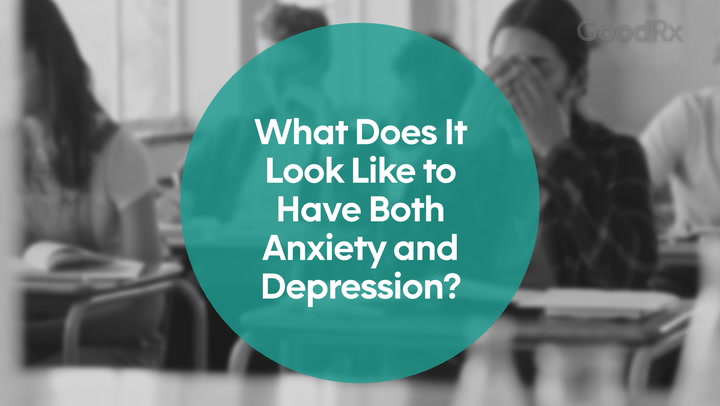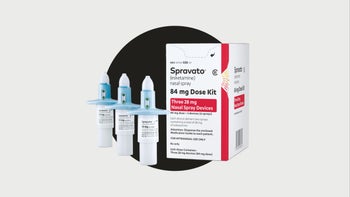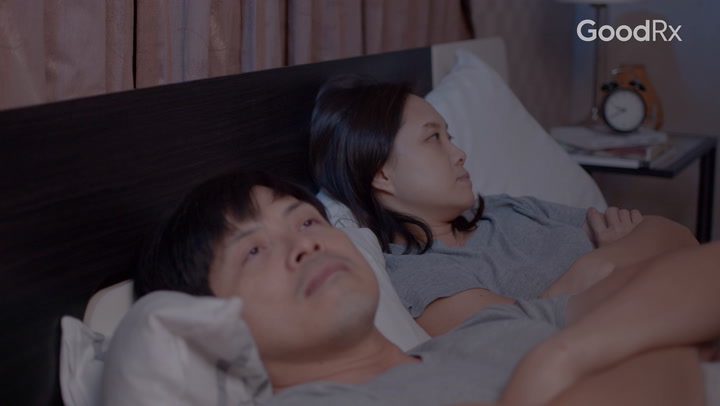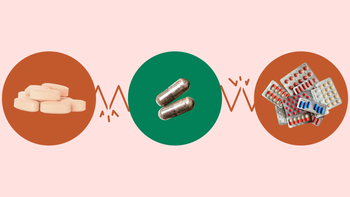
Can You Get Disability Benefits for Depression?
Key takeaways:
The Social Security Administration has three different disability programs: Social Security Disability Insurance (SSDI), Supplemental Security Income (SSI), and Medicare.
If you have depression, you may be eligible for Social Security disability — especially if your symptoms are severe or make it impossible for you to work.
You can apply for Social Security disability benefits on your own with the online application. In some cases, working with your healthcare provider or a lawyer can also be helpful.

If you’ve been struggling with depression for a year or more and you’ve been unable to work, you may be able to receive financial assistance from the government. We’ll walk you through how to figure out if you’re eligible for Social Security disability benefits and how to apply for them.
What is Social Security disability?
Social Security is a federal government program that provides different types of benefits to people who are in need. It is funded by federal taxes, and its benefits are paid out to people who are eligible for retirement, have low income, or are unable to work because of specific health conditions.
There are three types of Social Security programs that help people with disabilities:
Supplemental Security Income (SSI) pays benefits if you are an older adult, blind, or disabled and have little or no income.
Social Security Disability Insurance (SSDI) pays benefits if you are disabled and currently unable to work, but have worked in the past and paid into Social Security.
Medicare is health insurance for people who are either age 65 or older, have kidney failure, or have a qualifying disability.
Search and compare options
There are a number of different impairments that qualify for Social Security disability. They include medical conditions, like cardiovascular, respiratory, and endocrine disorders. They also include mental health conditions, like schizophrenia, autism spectrum disorder, bipolar disorder, and depression.
Does the ADA consider depression a disability?
Yes. People with depression are protected under the Americans with Disabilities Act (ADA). The ADA defines a person with a disability as anyone who:
Has a physical or mental health problem that “substantially limits” at least one major life activity — this could be working or taking care of yourself
Has had a physical or mental health problem in the past (like cancer)
Is perceived by other people as having a physical or mental impairment
If you fall into any of the above categories, you are protected by the ADA — including if your disability is caused by depression or another mental health condition.
Can you get Social Security disability benefits if you have depression?
Yes. Depression is a type of mental health disorder that can impact your mood, thoughts and feelings, weight, sleeping habits, energy level, and ability to function. If you have depression that interferes with your ability to work, then you may be eligible for Social Security disability benefits, like SSDI and SSI.
But keep in mind: The Social Security Administration (SSA) only provides benefits for total disability. You can’t get SSDI or SSI if you are only partially disabled or if your disability is short term. This means your disability must be severe enough to “significantly limit” your ability to work for at least 12 months.
When does the SSA consider depression a disability?
In order to qualify for Social Security disability benefits for depression, you must experience at least five of the following:
Depressed mood
Loss of interest in most activities
Significant changes in your appetite and weight
Sleeping issues
Movements that are either lethargic or agitated and are noticeable to others
Loss of energy
Feelings of guilt or worthlessness
Problems with concentration
Suicidal thoughts
You also must meet at least one of the following two conditions:
You experience problems comprehending information, interacting with other people, maintaining attention, or caring for yourself. You must experience limitations in at least two of these areas.
Your depression is considered serious and persistent and you have documentation showing that you have been suffering from the condition and receiving treatment for at least 2 years. You also have a hard time adapting to changes and new demands to your routine.
Do you qualify for SSDI or SSI?
It depends. SSDI and SSI have different eligibility requirements. Here’s how they compare.
SSDI
To qualify for SSDI, you must:
Have a qualifying disability that is considered severe (in this case, you meet the criteria for depression outlined above)
Have had a job in the past where you earned Social Security “work credits”
To earn work credits, you must have held a job where you paid into Social Security. Work credits that you earn are based on your annual wages. If you earn enough work credits in your lifetime, you become “insured” for Social Security disability. You can also become insured in some cases through a deceased spouse or a deceased or disabled parent.
SSI
To qualify for SSI, you do not have to earn work credits. But you must:
Be either age 65 or older, or blind or disabled
Have a limited income
Have limited personal resources
And keep in mind: It’s possible to receive both SSI and SSDI at the same time.
If you aren’t sure if you qualify for SSDI or SSI, you can learn more online or by calling the SSSA at 1-800-772-1213 (TTY 1-800-325-0778). Social Security representatives are available to answer the phones Monday to Friday between 8:30 a.m. and 5:00 p.m.
How do you apply for Social Security disability benefits?
When you need help, the last thing you want to deal with is a long and difficult application process. We’ll try to make it as easy as possible by breaking it down in three steps.
1. Decide how you would like to apply
The first step in the application process is figuring out how you would like to apply. You may choose to apply for disability benefits on your own. This is a good option if you understand the process and have the time to gather documents and fill out the application by yourself.
Another option is to hire a disability lawyer to help you with your application. Though hiring a lawyer can be expensive, many disability lawyers only charge you for their services if you win your case.
2. Gather information
If you choose to apply for disability on your own, the next step will be researching SSDI and SSI and figuring out whether you are eligible. You will need to get medical records from your healthcare providers.
To complete your application, you’ll also need:
Your Social Security number
Documentation with proof of your age, such as a birth certificate or driver’s license
The names, addresses, and contact information for all of your healthcare providers, as well as dates of service
The names and dosages of any medications you take
Any past laboratory test results
A copy of your most recent W-2 or federal tax return
A description of all of your past jobs
3. Complete your application
You can complete your disability application online, by phone, or in person at your local Social Security office. Applying online is the fastest and most convenient way to apply for disability. You can apply online as long as you:
Are at least 18 years old
Are not currently receiving disability benefits
Have not been denied benefits within the past 60 days
It generally takes 3 to 5 months to receive a decision. But, in some cases, you may be able to fast-track your application.
How long can you receive disability for depression?
You can continue to receive disability for depression for as long as your depression prevents you from working. You may no longer be eligible for disability benefits if your mental health improves and you are able to return to work.
The SSA will review your case from time to time to figure out whether you continue to be eligible to receive SSDI and/or SSI. If your depression improves and you return to work, you must notify the SSA right away.
If you’re still receiving SSDI when you reach full-retirement age, then your disability benefits will transfer to retirement benefits. The amount of money you receive will remain the same.
What if your application is denied?
If your application for disability is denied, you have several different options. When you receive a notice that your application has been denied, you have 60 days to formally appeal the decision.
Appealing your disability decision
If your initial application is denied, don’t get discouraged. A large portion of SSDI and SSI applications are denied at first. Fortunately, there are options for appealing the decision.
If you’re feeling overwhelmed by the process, do not hesitate to share your feelings with your treatment providers, such as your psychiatrist and therapist. They are available to help you cope with stressors in your life, including the disability process.
There are four steps to an appeal:
You can request a reconsideration if your application was denied based on medical reasons, income, living arrangements, or other reasons that you disagree with. When you file a reconsideration, someone from the SSA who was not involved in your original determination will review your application and any new evidence.
If you disagree with the SSA’s decision after a reconsideration, you may request a hearing by an administrative law judge who was not involved in your first determination. The hearing may take place in person or through video.
If you are denied benefits after a hearing with an administrative law judge, you may request a review by the Appeals Council. The council will consider all requests but may deny your request if they determine that the decision made by the administrative law judge was accurate. If the council reviews your case, they will either make a decision on their own or send your appeal to another administrative law judge.
The last level of the appeals process is filing a civil suit in federal court. You may do so if the Appeals Council refuses your case or you disagree with their decision. You have 60 days after receiving the decision from the Appeals Council to file a civil suit.
You may file an appeal online, by phone (1-800-772-1213), or in-person at your local Social Security office. You may choose to pursue an appeal on your own or hire a disability attorney to assist you in the process.
Can you get disability benefits for depression through the VA?
If you’re a veteran, in addition to SSDI and SSI, you may also be eligible for disability compensation through Veterans Affairs (VA).
VA disability compensation includes healthcare and a monthly, tax-free payment. You may be eligible if you have a disabling illness or injury that’s connected to your time in the military. Many different conditions are covered, including depression, anxiety, and PTSD (post-traumatic stress disorder).
The bottom line
If you have depression, you may be eligible for disability benefits — especially if your symptoms are severe or make it impossible to work. Disability benefits for people with depression include financial assistance and access to healthcare. If you have questions about your eligibility, reach out to your healthcare provider, the SSA, or VA. They can help you understand whether disability benefits are an option for you and assist you with enrollment.
Why trust our experts?



References
HealthIT.gov. (n.d.). The guide to getting & using your health records: How to get it.
Social Security Administration. (n.d.). Appeal a decision we made.
Social Security Administration. (n.d.). Benefits for people with disabilities.
Social Security Administration. (n.d.). Disability benefits: How to qualify.
Social Security Administration. (n.d.). Disability evaluation under social security.
Social Security Administration. (n.d.). Listing of impairments.
Social Security Administration. (n.d.). Supplemental security income (SSI).
Social Security Administration. (n.d.). What you should know before you apply for social security disability benefits.
Social Security Administration. (n.d.). Your continuing eligibility.
Social Security Administration. (2020). Social security’s disability programs.
U.S. Department of Justice. (n.d.). Introduction to the Americans with disabilities act. ADA.gov.
U.S. Department of Veterans Affairs. (2021). VA disability compensation.
U.S. Department of Veterans Affairs. (2022). Eligibility for VA disability benefits.
For additional resources or to connect with mental health services in your area, call SAMHSA’s National Helpline at 1-800-662-4357. For immediate assistance, call the National Suicide Prevention Lifeline at 988, or text HOME to 741-741 to reach the Crisis Text Line.

























